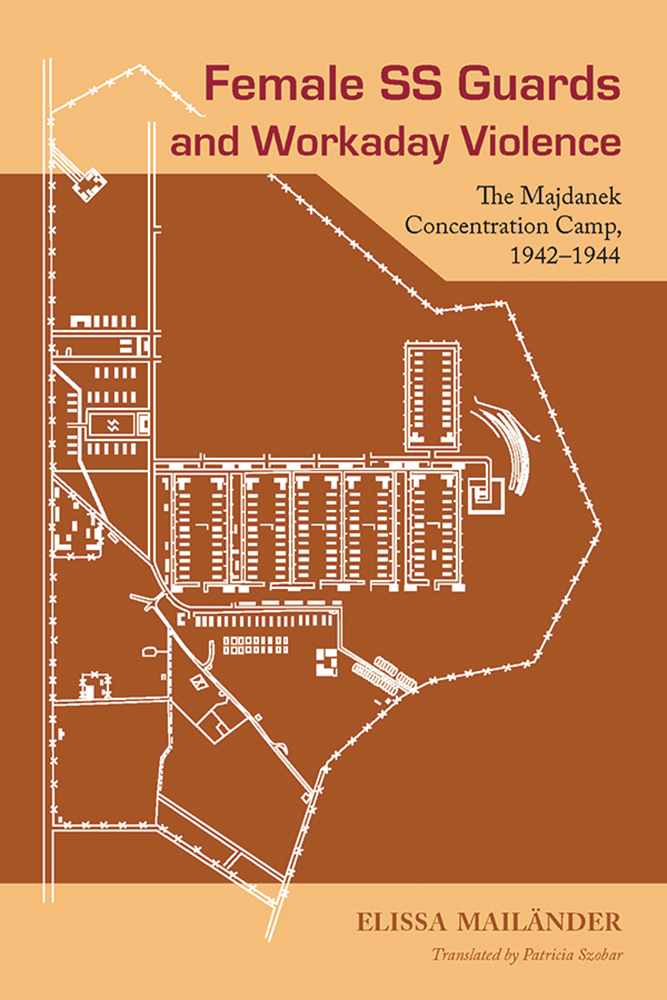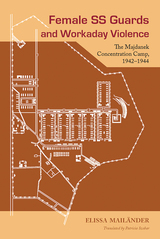Female SS Guards and Workaday Violence: The Majdanek Concentration Camp, 1942-1944
Michigan State University Press, 2015
eISBN: 978-1-62896-231-4 | Cloth: 978-1-61186-170-9
Library of Congress Classification D805.5.M35M34513 2015
Dewey Decimal Classification 940.53185
eISBN: 978-1-62896-231-4 | Cloth: 978-1-61186-170-9
Library of Congress Classification D805.5.M35M34513 2015
Dewey Decimal Classification 940.53185
ABOUT THIS BOOK | AUTHOR BIOGRAPHY | REVIEWS | TOC | REQUEST ACCESSIBLE FILE
ABOUT THIS BOOK
How did “ordinary women,” like their male counterparts, become capable of brutal violence during the Holocaust? Cultural historian Elissa Mailänder examines the daily work of twenty-eight women employed by the SS to oversee prisoners in the concentration and death camp Majdanek/Lublin in Poland. Many female SS overseers in Majdanek perpetrated violence and terrorized prisoners not only when ordered to do so but also on their own initiative. The social order of the concentration camp, combined with individual propensities, shaped a microcosm in which violence became endemic to workaday life. The author’s analysis of Nazi records, court testimony, memoirs, and film interviews illuminates the guards’ social backgrounds, careers, and motives as well as their day-to-day behavior during free time and on the “job,” as they supervised prisoners on work detail and in the cell blocks, conducted roll calls, and “selected” girls and women for death in the gas chambers. Scrutinizing interactions and conflicts among female guards, relations with male colleagues and superiors, and internal hierarchies, Female SS Guards and Workaday Violence shows how work routines, pressure to “resolve problems,” material gratification, and Nazi propaganda stressing guards’ roles in “creating a new order” heightened female overseers’ identification with Nazi policies and radicalized their behavior.
See other books on: 1942 - 1944 | Lublin | Majdanek (Concentration camp) | Officials and employees | Poland
See other titles from Michigan State University Press






























